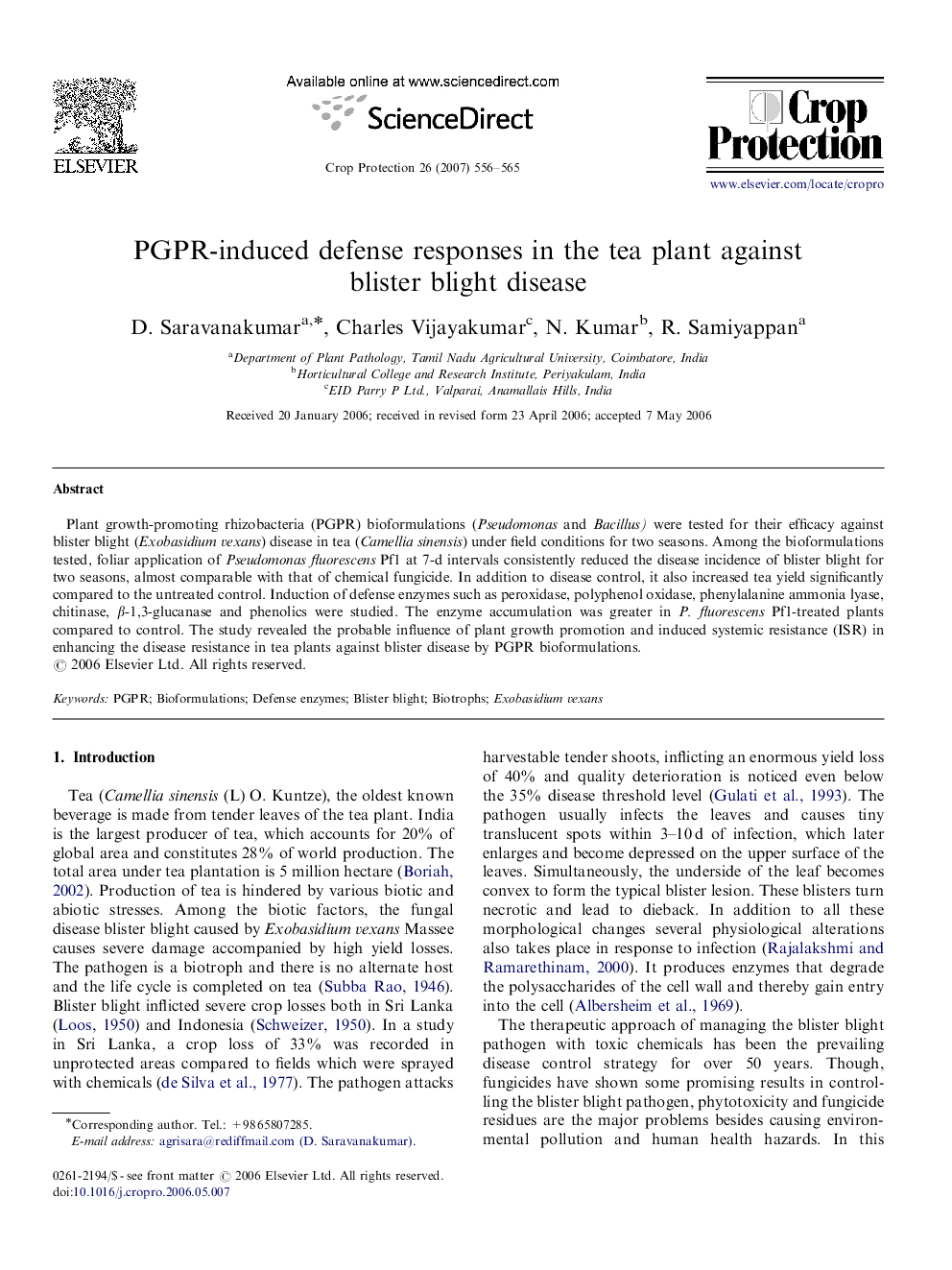| Article ID | Journal | Published Year | Pages | File Type |
|---|---|---|---|---|
| 4507181 | Crop Protection | 2007 | 10 Pages |
Plant growth-promoting rhizobacteria (PGPR) bioformulations (Pseudomonas and Bacillus) were tested for their efficacy against blister blight (Exobasidium vexans) disease in tea (Camellia sinensis) under field conditions for two seasons. Among the bioformulations tested, foliar application of Pseudomonas fluorescens Pf1 at 7-d intervals consistently reduced the disease incidence of blister blight for two seasons, almost comparable with that of chemical fungicide. In addition to disease control, it also increased tea yield significantly compared to the untreated control. Induction of defense enzymes such as peroxidase, polyphenol oxidase, phenylalanine ammonia lyase, chitinase, β-1,3-glucanase and phenolics were studied. The enzyme accumulation was greater in P. fluorescens Pf1-treated plants compared to control. The study revealed the probable influence of plant growth promotion and induced systemic resistance (ISR) in enhancing the disease resistance in tea plants against blister disease by PGPR bioformulations.
